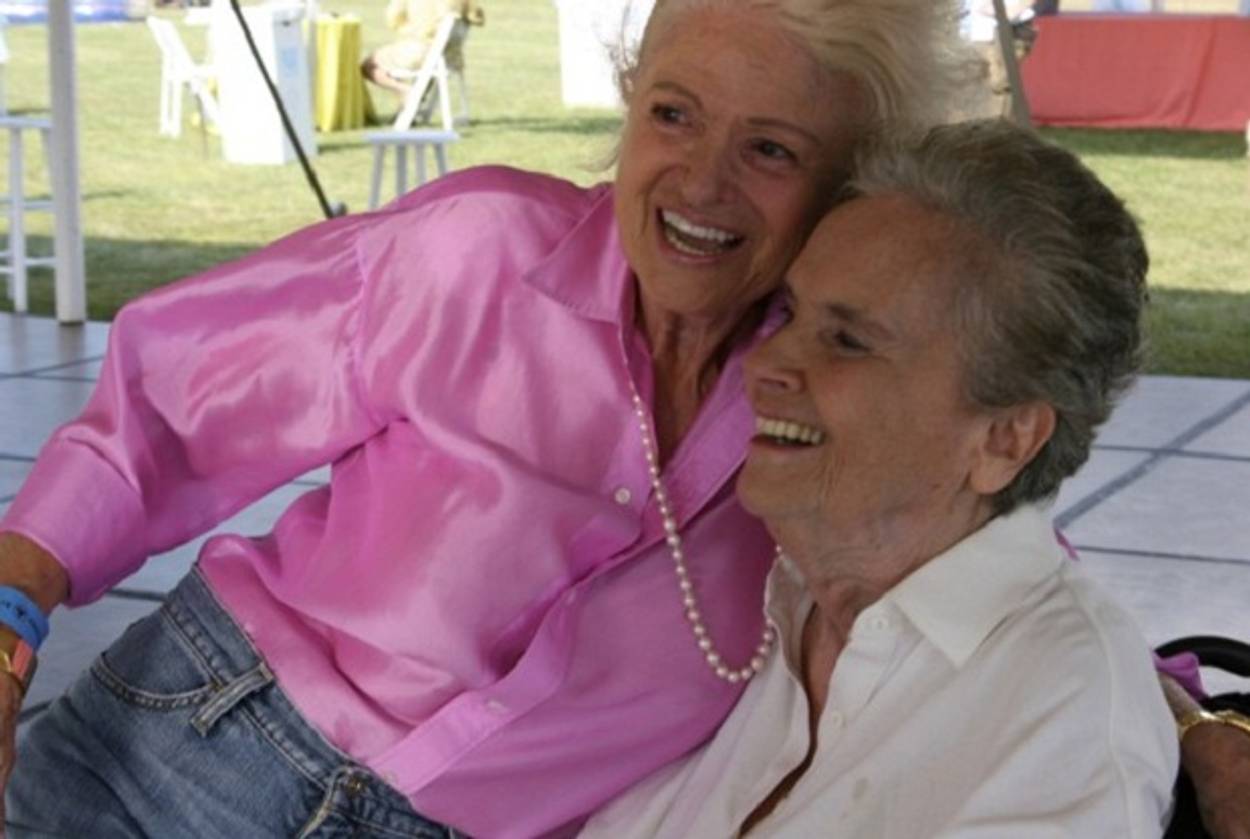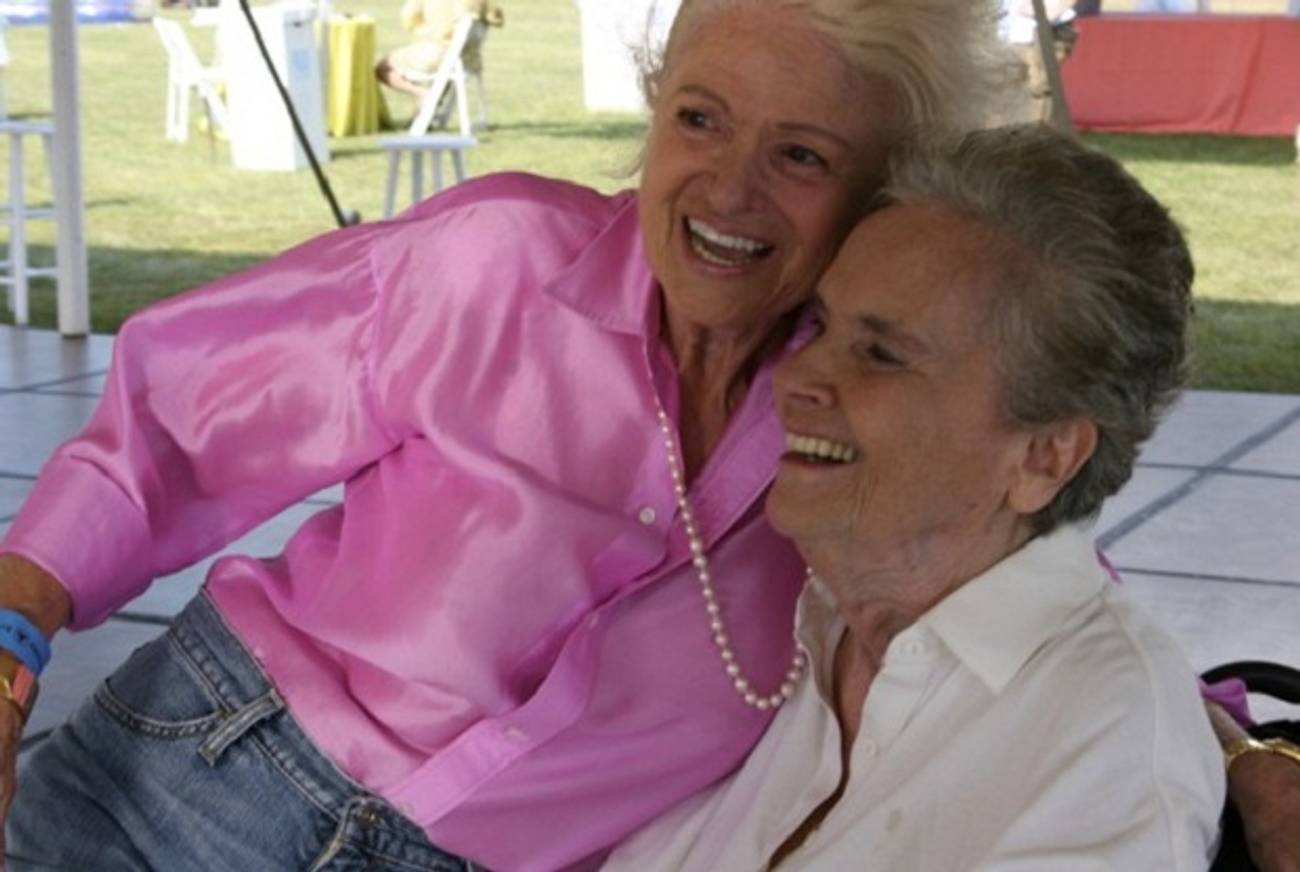Jewish Groups File Briefs Favoring Gay Marriage
The same-sex marriage cases will be heard at the end of next month




Friend-of-the-court briefs are due to the Supreme Court today in the twin same-sex marriage cases scheduled to be heard at the end of March. Among the many groups filing in favor of overturning the federal ban on gay marriage are the central bodies of every major Jewish denomination except Orthodoxy–the Union for Reform Judaism; the United Synagogue of Conservative Judaism, the Conservative Rabbinical Assembly, and the the Jewish Theological Seminary; the Reconstructionist Rabbinical Association and College–and a lone Orthodox rabbi, Akiva Herzfeld of Shaarey Tphiloh in Portland, Maine. They join civil rights groups and a list of 278 prominent American corporations, from Citigroup to Apple, asking the court to recognize same-sex marriage.
The thrust of the religious argument is that because a number of religious authorities officiate and recognize same-sex marriage within their rites, the federal government doesn’t have the right to declare those weddings invalid under civil law. “Certain amici supporting reversal have argued that civil recognition for the marriages of same-sex couples would alter a longstanding ‘Christian’ definition of ‘marriage,’” reads the amicus brief filed by the Jewish organizations, along with Protestant religious groups, this afternoon in the case of Edith Windsor, the widow who is being billed $363,000 in estate taxes because the IRS currently doesn’t recognize her 2007 Canadian marriage to her longtime partner, Thea Spyer. “Crediting such arguments would improperly both enshrine a particular religious belief in the law — itself prohibited under the Establishment Clause–and implicitly privilege religious viewpoints that oppose marriage equality over those that favor it.” (The whole brief in the Windsor case is posted here as a PDF.)
It’s an argument that continues the logic presented by many of the same Jewish and Christian groups, along with secular organizations like the Anti-Defamation League and Hadassah, in Windsor’s successful circuit court appeal last fall. Both briefs, in a sense, argue that the 1996 DOMA legislation unconstitutionally restricts the authority of religious bodies to decide what counts as marriage — an inversion of the more common argument that religious marriage and civil marriage ought to be considered separate constructs, which remains the fallback position of many liberal groups. “The Reform Movement has long held that each religious denomination has the right to decide which marriages it chooses to sanctify, but civil marriage should be open to all individuals,” Barbara Weinstein, the legislative director of the Reform Religious Action Center, told Tablet. “This brief supports that principle.”
That idea is picked up in a separate brief (posted here) filed in the challenge to California’s Proposition 8, the 2008 measure that enshrined recognition of heterosexual marriage to the state’s constitution and suspended the state’s court-ordered recognition of same-sex marriage ceremonies. The filing quotes from Alexis de Tocqueville–“The structure of religious life has remained entirely distinct from the political organization”–and addresses the question of equality under civil law as distinct from the question of free religious expression. “Eliminating discrimination in civil marriage will not impinge upon religious doctrine or practice,” the brief argues. “All religions would remain free–as they are today with nine states and the District of Columbia permitting same-sex couples to marry–to define religious marriage in any way they choose.”
Earlier: Jewish Organizations Join DOMA Appeal
Filings in the Defense of Marriage Act and California’s Proposition 8 Cases [Supreme Court]
Corporate Call for Change in Gay Marriage Case [NYT]
Allison Hoffman is a senior editor at Tablet Magazine. Her Twitter feed is @allisont_dc.